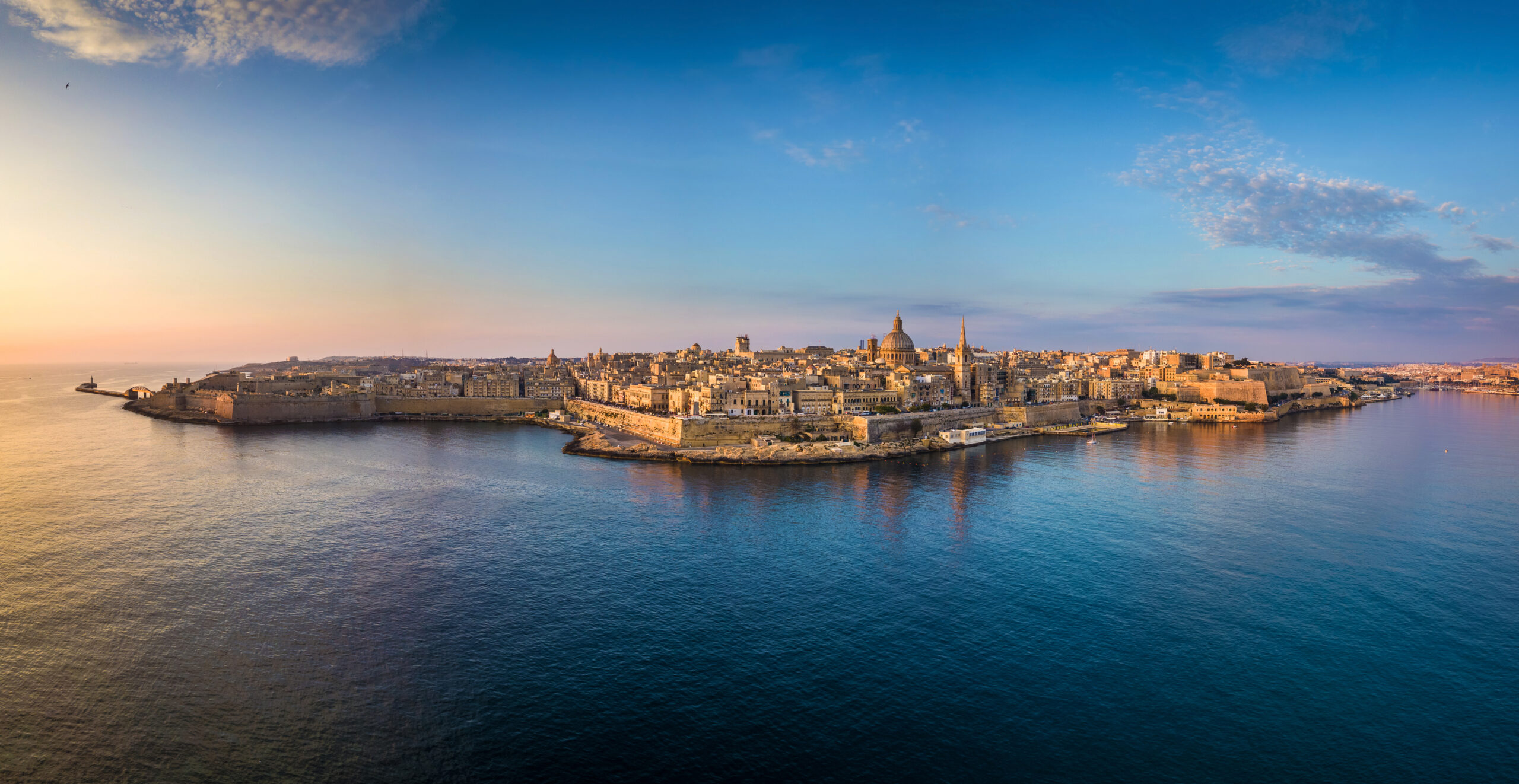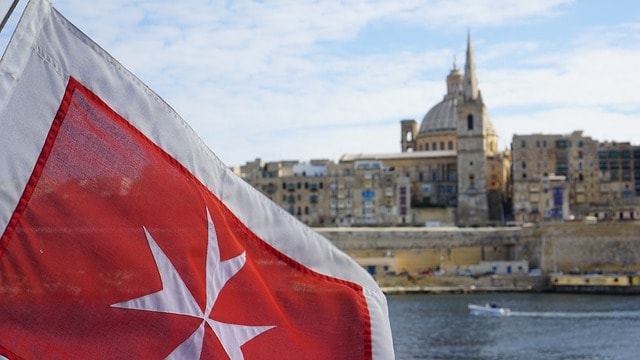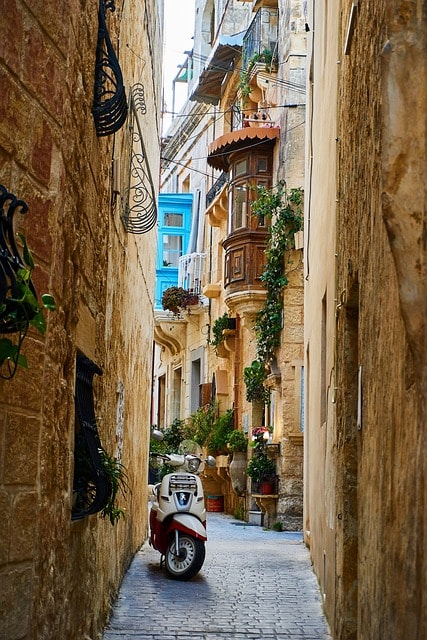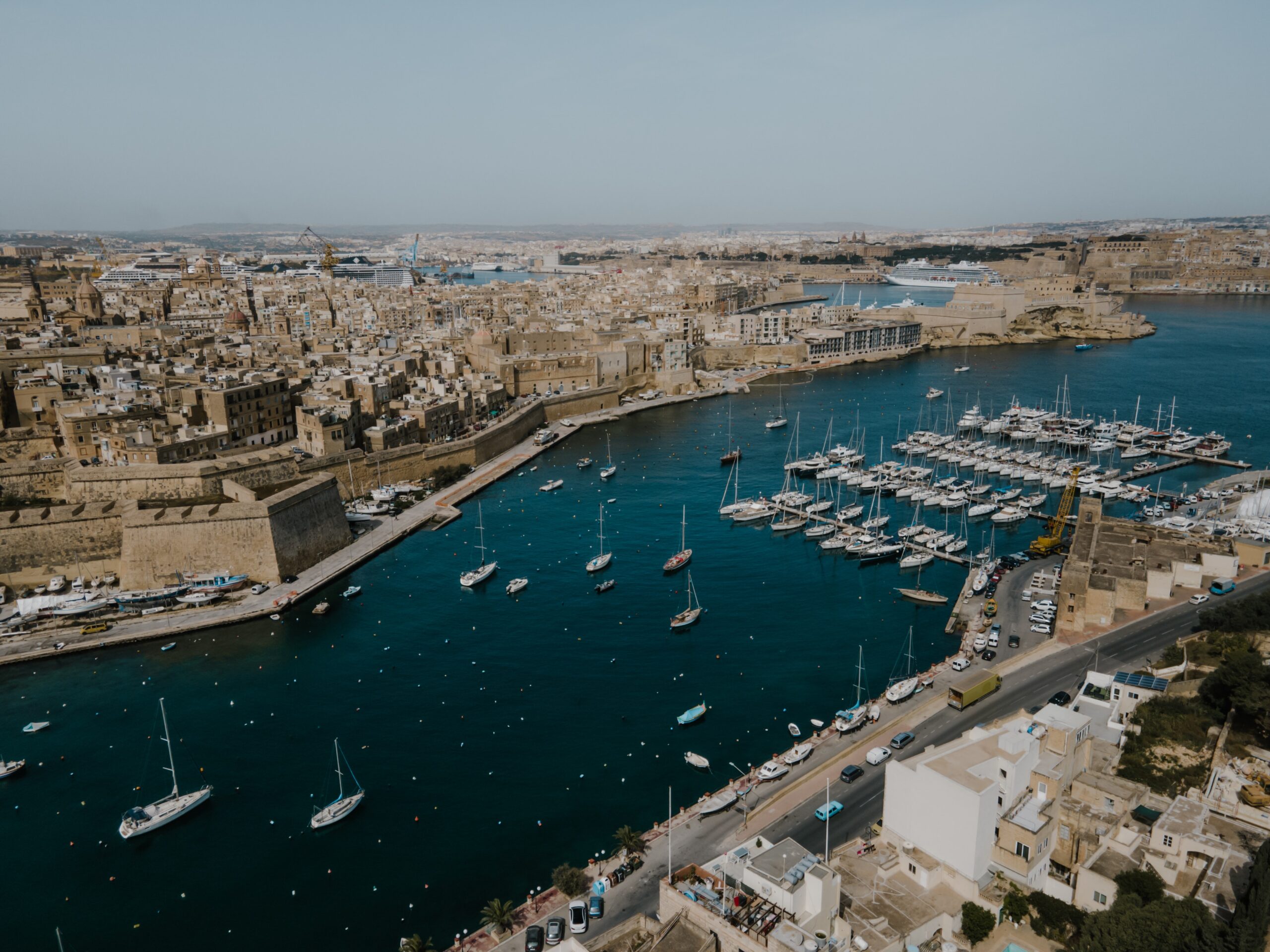Discover the Lifestyle, Tax Benefits, and Residency Options for UK British Citizens in Malta

Introduction
Moving to Malta from the UK has become an increasingly popular choice for those seeking a better lifestyle, warmer climate and attractive financial benefits. Whether you are looking to relocate for personal reasons, business opportunities, or investment purposes, Malta offers a wealth of advantages, including a highly sought-after citizenship by investment Malta program. To qualify for this program, individuals must adhere to direct investment regulations, which include specific eligibility criteria and exclusions for certain nationalities. Additionally, Identita plays a crucial role in the residency process, assisting with visa applications, residence permits, and biometric residence cards for family members. This comprehensive guide explores everything you need to know about living in Malta, from residency options and tax benefits to the finer details of the Malta Citizenship by Investment (MEIN) program, giving you a clear path to EU citizenship and a new Mediterranean life.
Article Summary
This comprehensive guide explores everything you need to know about moving to Malta from the UK — from residency options like the Malta Permanent Residence Programme or the Malta Citizenship by Investment program to obtain a valid residence card. Discover the lifestyle, tax advantages, and property market, and learn why Malta is fast becoming the destination of choice for many UK nationals.
Key Takeaways

Malta offers attractive tax residency options for UK citizens, including the Malta Permanent Residence Programme and Malta Global Residence Programme.
UK expats in Malta can benefit from favourable overall taxation in Malta, which is often more advantageous compared to other European countries, including pensions in Malta.
Malta’s citizenship by investment programs provide a gateway to EU citizenship.
The cost of living in Malta is generally lower than in the UK, making it an affordable destination for expats.
Enjoy peace of mind with Malta’s exceptional safety, world-class healthcare, and high-quality schooling, providing a secure and nurturing environment for families.
With English widely spoken throughout Malta, communication is seamless, making it an ideal destination for international residents and investors.
Background about Malta and Its History

A Gateway to Europe, Africa, and the Middle East, Malta is an archipelago rich in history, culture, and opportunity. Located at the crossroads of major Mediterranean trade routes, Malta has played a pivotal role in European history, from the ancient Phoenicians to the Knights of St. John. Today, Malta is known for its stable economy, EU membership and Schengen Area access, making it a strategic location for expats and investors.
Living in Malta: A British Expat’s Dream

Malta offers a unique blend of Mediterranean lifestyle and modern conveniences. British citizens feel right at home, as English is an official language, and the island’s culture has strong British influences due to its colonial past.
Lifestyle Benefits in Malta for UK Citizens
The relaxed pace of life in Malta is a stark contrast to the UK’s bustling cities. Expats can enjoy the outdoor lifestyle, exploring Malta’s stunning coastlines, ancient architecture and rich history. With a vibrant expat community and numerous social events, it’s easy to integrate into Maltese society.
Adjusting to life in Malta can be easier by learning about the local language and culture. Although English is widely spoken, learning some basic Maltese can be helpful and appreciated by the locals. Joining community events and understanding cultural customs can help UK citizens feel more at home and make new friends. Malta is known for its friendly and welcoming communities, making it easier for newcomers to adapt to life on the island.
Climate in Malta

Moving to Malta from the UK is becoming more popular for people looking for a change in lifestyle and a warmer climate. One of Malta’s biggest attractions is its Mediterranean climate. With hot, dry summers and mild winters, Malta boasts an average of 300 days of sunshine a year—perfect for those looking to escape the UK’s often dreary weather. Whether you’re interested in Malta for its good weather, lower cost of living, or friendly community, this island nation offers a lot of advantages. This article will explore why moving from the UK to Malta could be a great choice for you.
Safety in Malta: A Secure Environment for Expats

Malta is one of the safest countries in Europe, making it ideal for families and retirees. According to crime data, Malta has significantly lower crime rates than the UK, providing expats with peace of mind.
To give you an idea of the crime rates in Malta and in the UK:
● Malta: 28 crimes per 1,000 people in 2022.
● England and Wales: 89.7 crimes per 1,000 people in 2023/2024.
● Scotland: 55 crimes per 1,000 people in 2023/2024.
● Northern Ireland: 58.4 crimes per 1,000 people in 2022/2023.
Besides safety, the strong sense of community in Malta is another reason why people choose to move here. Expats in Malta often find it easy to become part of the local community because of the island’s friendly culture. English is widely spoken, which helps UK citizens communicate easily, and there are many social groups, clubs, and events for newcomers, giving people lots of chances to make friends and build a support network.
Malta offers attractive tax residency options for UK citizens, including the Malta Permanent Residence Programme and Malta Global Residence Programme.
UK expats in Malta can benefit from favourable overall taxation in Malta, which is often more advantageous compared to other European countries, including pensions in Malta.
Malta’s citizenship by investment programs provide a gateway to EU citizenship.
The cost of living in Malta is generally lower than in the UK, making it an affordable destination for expats.
Enjoy peace of mind with Malta’’s exceptional safety, world-class healthcare, and high-quality schooling, providing a secure and nurturing environment for families.
With English widely spoken throughout Malta, communication is seamless, making it an ideal destination for international residents and investors.
Schooling in Malta

Schooling in Malta provides several options for both locals and expats. The education system is divided into public, church, and private schools, all of which are accredited by the Malta Ministry for Education. Education is compulsory for children between the ages of 5 and 16, ensuring that all children receive a good education. Maltese educational qualifications are also recognized across other European countries, making it easier for students to pursue further education or career opportunities within the region.
Public Schools
Public schooling in Malta offers free education to residents, including Maltese citizens and EU/EEA citizens. For UK citizens, access to free public education is possible if they have legal residency in Malta and at least one parent holds a Maltese work permit or is employed in Malta. If these conditions are met, children of UK citizens can attend public schools, where both English and Maltese are used as languages of instruction, covering early childhood, primary, and secondary education.
Private and International Schools
If UK citizens do not meet these criteria, they may need to consider private or international schooling in Malta. Malta has several international schools that follow different curricula, such as British, American, or International Baccalaureate systems. Schools like Verdala International School and St. Edward’s College cater to foreign students and provide a diverse environment.
Families living in Malta with children should think about the language of instruction, location, and costs when choosing a school. International schools mostly use English as the main language, which can help non-Maltese-speaking children adjust more easily.
Healthcare in Malta

The Maltese healthcare system is known for its high quality and accessibility, which is important for those moving to Malta from the UK. The country’s healthcare system ranks among the best in Europe, 19th out of 167 countries, to be precise.
Malta has a dual healthcare system that includes both public and private healthcare services. Public healthcare is funded through taxes and provides free services to residents who work in Malta, have a social security number, and pay social security contributions. This system offers a wide range of services, including visits to general practitioners, hospital care, and specialized treatments.
Private healthcare in Malta is also popular, especially for those who want shorter waiting times and more personalized care. Private hospitals and clinics, like Saint James Hospital and Saint Thomas Hospital, offer specialized treatments that are not always available in the public sector. Many expats in Malta tend to have private health insurance as it is one of the requirements for residency.
UK citizens living in Malta can access healthcare services depending on their residency status. Those who work and pay social security contributions can use the public healthcare system, just like Maltese citizens. However, those who have moved to Malta through residency or citizenship by investment Malta programs need to have private health insurance to cover their healthcare needs.
Property in Malta

The real estate market in Malta provides various options for people interested in buying or renting. The demand for property in Malta has increased due to the country’s appealing lifestyle, stable economy, and the benefits of having a Malta residence card. This card allows non-EU nationals to live and work in Malta, which makes the property market even more attractive.
When moving to Malta from the UK, the first decision investors need to make is whether to buy or rent. To decide, they should consider their long-term plans. Buying property in Malta can be a good investment because property values have been steadily rising. Popular areas for expats in Malta include Sliema, St. Julian’s, and Valletta, where you can find a mix of modern apartments, traditional townhouses, and luxury villas. These areas are popular for their business centres, lively atmosphere, and beautiful views. Renting is a better option for those who do not plan to stay permanently or want to explore different parts of the island before buying.
Foreigners who are considering purchasing property in Malta need to know about some legal requirements. Non-EU nationals must get an Acquisition of Immovable Property (AIP) permit to buy property, unless the property is in a Special Designated Area (SDA). In SDAs, there are no restrictions on foreign ownership, and these areas often have extra amenities and provide exceptional services such as gyms, pools, and concierge services. It is also important for buyers to hire a notary to check property titles and make sure all local regulations are followed.
Here is a list of Special Designated Areas for a direct investment property purchase in Malta:
● Fort Chambray, limits of Għajnsielem, Gozo
● Madliena Village, Madliena
● Portomaso Development, St Julians
● SmartCity
● San Lawrenz Kempinski Development, Gozo
● Fort Cambridge, Sliema
● Cottonera Development
● Manoel Island/Tigne Point, Gżira and Sliema
● Tas-Sellum Residence, limits of Mellieħa
● Ta’ Monita Residence, Marsascala
● Pender Place and Mercury House, St Julians
● Metropolis Place, Gżira
● Vista Point, Marsalforn, Gozo
● Quad Business Towers, Mriehel
● Verdala Terraces
● Targa Square
Merits of Investing in Property in Malta
Malta’s real estate market has been booming, offering a high return on investment for both buyers and renters. Foreign nationals who want to make a direct investment can buy property without restrictions in Special Designated Areas (SDAs), which include upscale developments like Tigne Point and Portomaso.
Strong Rental Demand: Malta boasts a robust rental market, driven by both tourists and expats, ensuring a steady demand for short and long-term rentals.
Potential for Capital Appreciation: With a growing economy and increasing international interest, property values in key locations across Malta have shown a tendency for appreciation over time.
Quality of Life: Investing in property in Malta provides access to a Mediterranean lifestyle with a warm climate, rich history, and excellent healthcare and education systems.
By evaluating these factors and the range of properties available, buyers can secure a property that not only enhances their lifestyle but make a direct investment which provides capital growth opportunities in Malta.
Cost of Living in Malta

When thinking about moving from the UK to Malta, one of the biggest considerations is the cost of living in Malta. Generally, Malta is more affordable than the UK, which makes it an appealing choice for those looking to save money. To put this into perspective, in 2023, the total household final consumption expenditure on goods and services varied between Malta and the UK.
Malta:
Expenditure was about 11% lower than the EU average, making everyday expenses more affordable.
UK:
Expenditure was about 28% higher than the EU average, making it relatively more expensive.
This means that everyday expenses like housing, groceries, and utilities tend to be much more affordable in Malta compared to the UK. The cost of living in Malta allows you to enjoy a comfortable lifestyle without the high expenses you might be used to in the UK. With lower costs and a high quality of life, Malta also offers excellent healthcare, a range of educational opportunities, and a growing job market.
Understanding Malta’s Residency Options
Permanent Residence in Malta

Malta, a beautiful island in the Mediterranean, offers several residency options for people who want to live there. Getting permanent residency in Malta is a popular choice for people who want to live in a beautiful and culturally rich EU country. The Malta Permanent Residence Programme offers non-EU nationals the chance to live in Malta permanently, with benefits like access to education, healthcare, and the ability to travel within the Schengen Area.
However, the country provides many other programs for residency, each designed for specific needs, whether you want to make Malta your permanent home, live there part-time, or take advantage of its favourable tax system.
This guide will explore the main residency programs granting residence permit for those moving to Malta from the UK.
Malta Permanent Residence Programme
The Malta Permanent Residence Programme (MPRP) developed by the Maltese Government is one of the most popular residency options for non-EU nationals who want to secure a residence permit to live in Malta long-term. This program allows individuals and their families to obtain permanent residency without needing to live in Malta full-time. The MPRP is attractive because the application process is simple, and the benefits are substantial.
To qualify for the Malta Permanent Residence Programme, applicants must meet certain requirements, including investing in government-approved property, making a contribution to the government, and donating to a Maltese NGO.
The Malta Permanent Residence requirements also include applicants having enough financial resources to support themselves and their family members, as well as valid health insurance that covers the applicant throughout the EU.
Once these conditions are met, applicants are granted a residence permit that allows them to live in Malta indefinitely. Overall, the MPRP is an excellent option for those who want to enjoy the benefits of living in Malta without needing to be there full-time.
Malta Global Residence Programme
The Malta Global Residency Programme (GRP) developed by the Maltese Government is aimed at non-EU, EEA, and Swiss nationals who want to live in Malta and benefit from its favourable tax system. This program offers special tax status to individuals who meet certain criteria, such as purchasing or renting property in Malta and paying a minimum amount of tax each year. The GRP is particularly popular with retirees and wealthy individuals moving to Malta from the UK, as they would be looking for a Mediterranean lifestyle with tax advantages. Additionally, the Malta Global Residency Programme provides access to healthcare, education, and the ability to travel within the EU, making it an attractive option for foreigners.
To be eligible for the Malta Global Residence Programme, applicants must meet several conditions, such as having a stable income, buying or renting property that meets minimum value requirements, and maintaining health insurance. They must also prove that Malta is not their permanent home and that they do not spend more than 183 days in Malta in a year.
Residency in Malta through the GRP offers a flat tax rate on foreign income brought into Malta, which is an attractive option for those looking to manage their global tax obligations.
Malta Digital Nomad Visa

Malta has recently become a popular destination for digital nomads, thanks to its sunny climate, rich culture, and excellent internet connectivity. The Malta Digital Nomad Visa is a new option that allows non-EU nationals who work remotely to live in Malta for up to a year. This visa is perfect for freelancers, entrepreneurs, and remote workers who want to experience life in Malta while continuing to work for companies or clients in other countries.
To qualify for the Malta Digital Nomad Visa, applicants must prove that they can work remotely, have a stable income, and have a valid work contract or run their own business. They must also have travel insurance, a clean criminal record, and a place to live in Malta for the duration of their stay.
Residency in Malta through the Digital Nomad Visa is ideal for remote workers moving to Malta from the UK, as it will give them the opportunity to explore Malta’s history, culture, and natural beauty.
Malta Residence Card

Moving to Malta from the UK involves understanding how to get a Malta residence card and following other legal requirements. For UK citizens, moving to Malta typically requires a visa, depending on their reason for moving, such as work, retirement, or investment. After securing a visa, applying for residency is an essential step. The process for residency in Malta requires several documents, including proof of income, health insurance, and, in some cases, proof of property ownership or a rental agreement.
Malta Offshore Bank Account

Once UK citizens have their residency card, there are a few more practical steps to take. Opening a bank account in Malta is straightforward but requires proof of identity, proof of address, proof of income and employment, tax identification number and sometimes an initial deposit. It is also necessary to register with local authorities, which includes getting a Maltese identification number and registering with the Inland Revenue Department for tax purposes.
Taxation in Malta

Overview of Malta’s Tax System
Malta’s tax system is structured around a territorial tax principle, which delineates how income is taxed for individuals and corporations. Under this framework, income generated within Malta’s borders or remitted from abroad is subject to taxation. For residents with permanent homes in Malta, all global income is taxable, while those with tax residency but no permanent residence are only taxed on domestic income and funds brought into the country.
Income Tax Malta

Malta’s tax system is based on a territorial tax principle, which affects how taxes are applied in the country. Generally, taxation in Malta focuses on taxing individuals and companies on income earned within its borders or income brought into Malta from abroad.
For those who have tax residency in Malta and live there permanently, all income earned worldwide is subject to tax. However, individuals who are tax residents in Malta but do not have a permanent home are only taxed on the income they earn in Malta and any money they bring into the country.
This system is particularly attractive for expats and foreign investors because it allows them to reduce their tax obligations. Under this framework, capital gains tax in Malta, which applies to profits from selling assets, does not apply to gains made outside Malta unless the money is transferred to Malta.
Tax Benefits for UK Citizens
UK citizens who obtain tax residency in Malta can enjoy several tax benefits.
One of the main advantages is the prevention of double taxation due to a tax agreement between Malta and the UK. This agreement ensures that income is not taxed in both countries, creating a better tax situation for UK residents in Malta.
For retirees moving to Malta from the UK, taxation in Malta offers significant benefits, including lower rates on pension income and certain exemptions. For example, under the Malta Retirement Programme, eligible pensions in Malta can be taxed at a flat rate of 15%, with a minimum tax requirement. There are also other exemptions and benefits for those who bring their pensions in Malta, especially for former UK public service employees.
Capital Gains Tax Malta
Capital gains tax in Malta is based on the territorial system. For individuals, capital gains made outside of Malta are not taxed unless the money is brought into Malta
Dividend Tax Malta
In Malta, dividends received from both local and foreign sources are generally taxed at the standard corporate tax rate of 35%, though shareholders may benefit from a partial refund through the country’s imputation system, which can reduce the effective tax rate significantly, depending on the specific circumstances.
Malta Corporate Tax

Malta’s corporate tax system is designed to attract businesses, especially those involved in international operations.
The standard corporate tax rate is 35%, but this rate can effectively be reduced to as low as 5% due to Malta’s refund system on dividends. This makes Malta an attractive place for companies that want to minimize their tax obligations.
For companies, gains from selling securities are generally exempt from tax if the company meets certain conditions related to ownership and management.
Inheritance Tax Malta

Additionally, there is no inheritance tax in Malta, making it a favourable location for estate planning. However, other taxes, such as stamp duty, may apply in specific situations, especially when transferring property.
Tax Exemptions in Malta
Malta offers several tax exemptions, including on foreign pension income and inheritance tax, making it an attractive destination for UK retirees.
Invest in Malta: A Business-Friendly Destination
Malta has a business-friendly environment that is great for entrepreneurs and investors, especially due to its attractive Malta corporate tax structure and other incentives, as outlined in the section on taxation in Malta.
Malta Citizenship by Investment & MEIN Malta: A Gateway to European Opportunities through Maltese Residency
Malta, an island with deep historical significance and a highly strategic location in the Mediterranean, offers more than just a beautiful lifestyle—it offers a robust pathway to EU citizenship through the Malta Citizenship by Investment Program (MEIN). This program is recognized globally for its flexibility, security, and prestige, making it one of the most sought-after investment migration programs in the world.
The MEIN program allows non-EU nationals such as British expats and their families to acquire Maltese citizenship through a combination of economic contributions, real estate investment, and philanthropy. The benefits are immense, including the ability to live, work, and study across all 27 European Union countries, as well as visa-free or visa-on-arrival access to over 180 countries, including the United States, Canada, and Schengen Zone countries.
Key Elements of the MEIN Malta Program
To qualify for Maltese citizenship through the MEIN program, applicants must fulfill specific financial requirements, which demonstrate a commitment to the country’s economy and society. The process typically involves the following steps:
Contribution to the National Development and Social Fund (NDSF)
Applicants must make a non-refundable contribution to the NDSF, which supports Malta’s social and economic development. The minimum contribution typically stands at €600,000 for standard applicants, but for a fast-tracked process (citizenship within 12 months), the contribution increases to €750,000.
Investment in Real Estate
To further integrate applicants into Malta’s economy, participants in the MEIN program are required to invest in Maltese real estate. This can either be through the purchase of a property worth at least €700,000 or renting a property with a minimum annual rent of €16,000. The property must be held for a minimum of five years from the date of obtaining the certificate of Naturalisation. This provides not only a stable investment but also opens the door to Malta’s booming property market.
Donation to a Maltese Non-Governmental Organization (NGO)
Beyond economic investment, applicants must also donate a minimum of €10,000 to a registered Maltese charity or NGO, contributing to the community’s cultural or social fabric.
Due Diligence and Residency Requirements
The Maltese government takes due diligence very seriously, ensuring that only reputable and financially stable individuals are granted citizenship. Applicants must undergo a comprehensive background check, and all family members included in the application must meet the same requirements. Additionally, the main applicant must maintain 12 months of residency in Malta before being granted citizenship, emphasizing the importance of a genuine connection to the country.
Eligibility Criteria for Malta Citizenship by Investment
To qualify for the Citizenship by Investment Malta program, applicants must meet certain eligibility criteria to obtain Maltese citizenship, including specific residency prerequisites:
Financial Stability: Applicants must prove sufficient financial resources to support themselves and their families without relying on Malta’s public services.
Good Character: All applicants must undergo a stringent due diligence process, which ensures that only individuals of good standing and no criminal record are eligible for the program.
Residency: Before obtaining citizenship, applicants must complete a 12-month residency period, during which they will have time to familiarize themselves with the country and establish genuine ties to Malta.
Investment Requirements: Similar to the MEIN program, applicants must make a contribution to the National Development and Social Fund, invest in real estate, and donate to a local charity.
Application Process for Malta Citizenship by Investment
The process of acquiring Maltese citizenship through investment involves several key stages:
Initial Application: Submit a comprehensive application through a licensed agent, providing proof of financial stability, good character, and investment intent.
Due Diligence Process: Undergo a thorough due diligence review, ensuring all information is accurate, complete, and compliant with Maltese laws.
Investment and Contribution: After receiving pre-approval, the applicant must make the necessary financial contributions and complete the real estate investment.
Residency Period: Complete the 12-month residency period required to establish ties to Malta.
Citizenship Grant: Upon completion of all requirements, the Maltese government issues a certificate of naturalization, officially granting citizenship.
Benefits of Malta Citizenship by Investment
The MEIN Malta program offers far-reaching benefits for investors and their families:
European Union Citizenship: As a Maltese citizen, you gain the right to live, work, and study in any of the 27 EU member states, as well as in Norway, Switzerland, and Iceland.
Visa-Free Travel: Malta’s passport offers visa-free or visa-on-arrival access to more than 180 countries, including Schengen Area, UK, Canada, and the United States.
Stable Political and Economic Environment: Malta is known for its stable government, strong rule of law, and favorable tax regime, making it an ideal location for both personal and corporate interests.
Wealth and Estate Planning: Maltese citizenship provides a secure jurisdiction for wealth preservation, with no inheritance tax, no wealth tax, and competitive capital gains rules, making it attractive for families seeking to protect their assets.
Access to EU Education: Malta’s EU membership allows citizens access to some of the best educational institutions in Europe at local rates, benefiting your children and future generations.
Healthcare Benefits: Citizens gain access to Malta’s excellent healthcare system, consistently ranked among the top in Europe.
This combination of benefits makes the MEIN Malta program one of the most appealing routes to European citizenship, providing global mobility and economic security.
Choosing the Malta Citizenship by Investment Program (MEIN) offers a lifetime of opportunities for you and your family. Whether for global mobility, EU access, or tax planning, obtaining Maltese citizenship is a strategic investment that will provide long-term value and security. Contact us today to learn more about the process and begin your journey to a new life in Malta.
Malta Passport & Malta Nationality by Investment: A World of Opportunities
For high-net-worth individuals, the Maltese passport is one of the most powerful passports available, offering global access, investment opportunities, and prestige. Acquiring a Maltese passport through the Nationality by Investment program not only opens doors to European citizenship, but it also offers significant economic advantages for you and your family.
Why Choose a Malta Passport?
Obtaining a Malta passport through the Nationality by Investment program provides individuals with unparalleled global mobility and financial benefits. As a Maltese citizen, you can:
Travel Visa-Free
Gain visa-free or visa-on-arrival access to over 180 countries, including the Schengen Zone, UK, Canada, and the US. This is particularly appealing for those whose nationalities impose significant travel restrictions, allowing for seamless global movement.
Live and Work in the EU
A Maltese passport grants full EU citizenship, allowing you and your family to live, work, and study in any EU member state, providing unparalleled freedom to pursue personal and professional goals throughout Europe.
Enjoy Malta’s Tax Advantages
As a Maltese citizen, you can benefit from Malta’s territorial tax system, which means you are only taxed on income generated in Malta or income brought into the country. There is no wealth tax, no inheritance tax, and no estate duties, making it an ideal jurisdiction for wealth preservation.
Pass Citizenship to Future Generations
Maltese citizenship is passed down to future generations, ensuring that your children and grandchildren also enjoy the same EU citizenship rights, enabling them to access world-class education, healthcare, and business opportunities across the European Union.
Why Choose Malta?
With its favourable tax system, high quality of life, and beautiful Mediterranean setting, Malta is the perfect destination for UK citizens looking to relocate. The benefits of Malta citizenship by investment are unparalleled, offering access to EU markets and visa-free travel.
In addition to tax benefits and residency options, Malta offers many business and investment opportunities in sectors like financial services, information technology, gaming, and tourism.
The country has strong regulations and a skilled, multilingual workforce, which makes it even more attractive as a place to do business. Malta’s strategic location between Europe, Africa, and the Middle East also provides easy access to these markets, making it an ideal place for companies looking to grow globally.
Professional Guidance: Tax Planning and Global Mobility Expert Advice

Relocating to Malta requires careful planning, especially when it comes to tax planning and residency requirements. It is essential to seek professional guidance from global mobility experts to ensure compliance and maximize the benefits of moving to Malta from the UK.
Frequently Asked Questions

What is the Malta Citizenship by Investment Program (MEIN)?
The Malta Citizenship by Investment Program, known as MEIN, allows non-EU nationals to acquire Maltese citizenship through significant financial contributions to the country’s economy. This includes donations to the National Development and Social Fund, real estate investments, and contributions to local NGOs.
What are the main benefits of acquiring Maltese citizenship?
Maltese citizenship offers numerous advantages, including visa-free travel to over 180 countries, the right to live and work in any EU country, access to Malta’s healthcare and education systems, and favorable tax conditions for both corporate and individuals.
How long does the application process take?
The standard processing time is approximately 12-18 months, depending on the completeness of your application and the due diligence process. A fast-tracked option may expedite citizenship within 12 months.
What are the financial requirements for the MEIN program?
Applicants must make a non-refundable contribution to the National Development and Social Fund (minimum €600,000), invest in real estate (minimum €700,000 or €16,000 annual rent), and donate at least €10,000 to a local NGO. Other fees related to due diligence and administrative fees are due.
Are there any residency requirements?
Yes, applicants must establish a genuine link to Malta by residing in the country for at least 12 months before obtaining citizenship.
Can my family apply with me?
Yes, you can include your spouse, unmarried children under 29 and financially dependent parents or grandparents over 55, in your application, provided they meet the eligibility criteria.
What documents do I need to submit?
You will need to provide proof of identity, financial stability, a clean criminal record, health insurance, and evidence of your investment in Malta. A licensed agent can guide you through the documentation process.
Can I lose my Maltese citizenship?
Yes, citizenship can be revoked if the applicant fails to fulfill the program requirements, commits serious crimes, or engages in activities deemed detrimental to Malta.
Where can I find more information about the Malta Citizenship by Investment Program?
For authoritative information, visit the Maltese Government website:
https:// komunita.gov.mt/en/services/acquisition-of-citizenship/
How can I start the application process?
It’s recommended to consult with a licensed agent who specializes in Maltese citizenship programs. They can help navigate the requirements, assist with documentation, and ensure a smooth application process.
Conclusion and Call to Action

Are you ready to make Malta your new home?
Moving to Malta is a great opportunity for those who want to enjoy a new way of life in a beautiful Mediterranean location. If you plan to relocate to Malta for its nice weather, lively community, or different residency in Malta options, there are many reasons to think about making this island your home. The lower cost of living, high quality of life, and good healthcare and education systems make Malta a good choice for families, retirees, and professionals.
Contact Us Today

Are you ready to move to Malta from the UK?
At Advice for Expats, we understand that expatriate life comes with a unique set of financial challenges and opportunities.
Our extensive network of trusted partners across multiple professional disciplines is here to provide you with the guidance and support you need to thrive as an expat.
We are driven by the fundamental belief in nurturing meaningful, deep and lasting client relationships; and the power of engaging in dialogue to craft solutions that truly resonate with client needs. We stand by the principles of transparency, active listening and extensive expertise as the keystones of our service.
Let us help you make a smooth and successful transition to become legal residents in Malta.
Start your expat journey with us now
For professional advice you can arrange a free initial consultation with a trusted expert on:
Telephone: +350 5600 5757
Email: [email protected]
Useful Resources

- Useful sources: https://www.gov.uk/world/living-in-malta